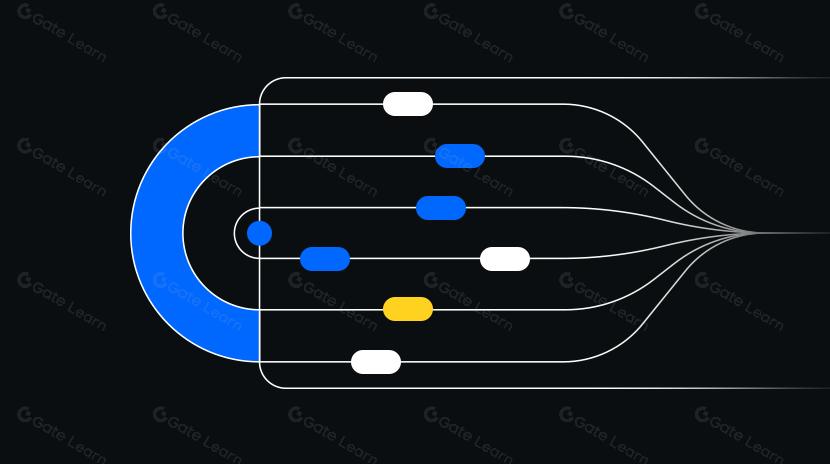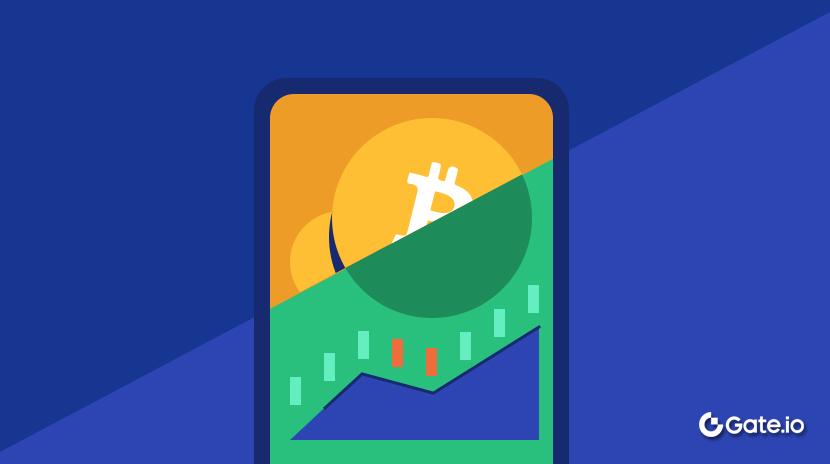definition for whale

What Does Whale Mean in Crypto?
A whale refers to an account or on-chain address holding a significant amount of cryptocurrency assets.
In the crypto market, whales typically possess enough capital to influence both price and liquidity. The term "on-chain address" can be understood as a blockchain-based receiving account. Whales may transfer large sums on-chain or place substantial orders on centralized exchanges. Their high-volume trades, concentrated fund movements, participation in governance voting, or protocol financing activities often draw close market attention.
Why Is Understanding Whales Important?
Whale activity is frequently linked to price volatility. Identifying their behavior early can help you manage risk and seize opportunities.
For example, when large amounts of crypto flow into exchanges, the market often fears potential sell-offs and short-term price drops. Conversely, when whales withdraw assets to cold storage or participate in staking, many interpret this as a bullish signal. For regular users, tracking whales serves as both a risk warning and an indicator of market sentiment and capital flows. Notably, during major Bitcoin price swings, whale accumulation or distribution often coincides with heightened volatility.
Common Behaviors of Whales in Crypto
Whale activity is usually characterized by large on-chain transfers, substantial order book placements, and fund management maneuvers.
-
Large On-Chain Transfers: For instance, when an address moves tens of millions of dollars’ worth of tokens to an exchange or cross-chain bridge in a single transaction, it sparks market discussion. Depositing to an exchange is seen as a potential sell signal, while transferring to a self-custody wallet suggests long-term holding.
-
Order Book "Buy/Sell Walls": The order book displays open buy and sell orders on exchanges. Whales may post massive buy or sell orders on spot or derivatives markets, temporarily affecting price movement resistance and impacting liquidity and slippage.
-
Stablecoin Management and Capital Allocation: Whales often move stablecoins between exchanges to quickly shift positions or participate in new projects, including liquidity provision and market making.
For example, by monitoring spot market depth and recent large trades on Gate.com—combined with on-chain data showing millions of USDT transferred into Gate.com—you’ll often see increased volatility and trade density in the short term. This on-chain to exchange link is a common way to identify whale intentions.
How to Track Whales
The goal is to turn "where the money goes" into actionable signals.
-
Select Target Assets and Blockchains: Focus on a handful of major assets, such as BTC or ETH, and specify their main blockchains to avoid information overload.
-
Monitor Large On-Chain Transfers with Blockchain Explorers: Blockchain explorers act as tools for reviewing transaction details. Watch for transactions involving significant amounts and addresses labeled as "exchange deposit/withdrawal."
-
Compile Address Lists and Subscribe to Alerts: Add suspected whale addresses to custom watchlists and use services or bots that alert you to large transfers in or out of exchanges for quicker response times.
-
Watch Order Books and Depth on Exchanges: On Gate.com’s trading pair pages, pay attention to where large buy/sell orders cluster and how they change, as well as any sudden surges in trade volume—both can indicate the presence of temporary whale walls impacting price action.
-
Analyze Stablecoin Flows and Capital Movement: Net inflows of stablecoins into an exchange often signal incoming buying power or preparation for selling other assets. Combine stablecoin on-chain flows with spot/derivatives trading activity for a more complete picture.
-
Log Events and Outcomes; Adjust Thresholds: For example, log every event where a single deposit of ≥1,000 BTC or ≥5,000,000 USDT enters an exchange. Review subsequent price and trading activity over the next 24–72 hours, gradually refining your criteria for what qualifies as a "significant" event.
Recent Whale Trends and Key Metrics
In 2025, whale-related indicators have shown a mix of concentrated holdings, low exchange balances, and expanding stablecoin capacity.
Bitcoin: Multiple Q4 2025 on-chain reports indicate that the number of addresses holding ≥1,000 BTC hovered around 2,000—slightly higher than in 2024. Exchange Bitcoin balances remained low throughout 2025 (approximately 2.3–2.5 million BTC), suggesting a shift toward long-term holding or self-custody. (Data sources: Glassnode/CoinMetrics quarterly reviews.)
Ethereum: In the second half of 2025, staking rates continued to rise, with some reports citing a staking ratio between 28% and 32%—up slightly from 2024. This indicates that large holders increasingly stake ETH for protocol rewards, reducing circulating supply and easing short-term selling pressure.
Stablecoins and Capital Management: Throughout 2025, stablecoin total market cap kept growing—USDT surpassed $100 billion and remained elevated, while USDC rebounded from the $3–3.5 billion range back to tens of billions. The role of stablecoins as "bridges" for whale capital flows became more prominent. Over the last six months, on-chain monitoring services recorded consistently high frequencies of large stablecoin transfers between exchanges, often used for quick entry into spot or derivatives markets.
Analysis: The combination of low exchange balances, growing stablecoin supply, and a modest increase in whale addresses points toward stronger self-custody practices and more flexible capital management. For price impact, large transfers into exchanges are still seen as short-term risk signals; withdrawals to self-custody or staking are generally interpreted as medium-term bullish signals.
How Are Whales Different from Market Manipulation?
Whales and market manipulation are distinct concepts—differing mainly in intent, methods, and transparency.
Whales are legitimate large-scale traders whose buying, selling, transferring, and staking activities occur within transparent and traceable blockchain rules. Market manipulation involves deliberately misleading prices or volumes through false information, collusion, or abnormal trading tactics (e.g., wash trading, spoofing orders, spreading false news). While illegal in mature markets, such practices are increasingly scrutinized by crypto regulators.
To differentiate: Spotting large trades or transfers alone does not indicate manipulation. Assess the reliability of information sources, look for accompanying false statements or abnormal trading structures (such as repeatedly pumping then dumping within a short period), and check for coordinated actions across multiple accounts—these factors help distinguish manipulation from normal whale activity.
Key Terms
- Whale: An address or entity holding significant crypto assets whose trades can influence market price movements.
- Wallet Address: A unique identifier used to store and manage crypto assets, similar to a bank account.
- On-Chain Transaction: A transfer or interaction recorded directly on the blockchain network; inherently transparent and traceable.
- Market Liquidity: The ease with which an asset can be quickly bought or sold; higher liquidity means easier trading.
- Holding Ratio: The percentage of total supply held by a specific address or entity.
FAQ
How much crypto does it take to be considered a whale?
There’s no fixed threshold for whale status—it’s relative. Generally, an address holding 0.1%–1% or more of a given asset’s total supply might be called a whale; the exact standard varies by token. For example, addresses with over 100,000 BTC are usually classified as whales; holding one million units of a small-cap token could also qualify. The key is the address’s share relative to the entire ecosystem—not just the absolute amount.
Why do whales have such an impact on prices?
Whales control vast amounts of capital—their trades dwarf those of average investors and can shock market liquidity. Large whale buys drive prices up; massive sells drive them down. These moves often trigger follow-the-leader behavior or stop-loss cascades among other traders, amplifying volatility. However, note that price swings aren’t always manipulation—routine portfolio rebalancing by whales can have similar effects.
How can I track what whales are doing?
You can review large transactions using blockchain explorers (such as Etherscan or BscScan) or monitor whale wallets via specialized tools like Whale Alert or Nansen. Gate also offers market analytics that highlight big trades and position changes. Keep in mind: transaction records alone don’t reveal true intentions—you need fundamental and technical analysis for deeper insights.
What should small investors do if they feel “dumped on” by whales?
First, distinguish normal market fluctuations from true manipulation. Retail investors should set stop-loss strategies, avoid excessive leverage, diversify portfolios to minimize exposure to any single asset, and trade on reputable platforms like Gate for better transparency and risk alerts. Most importantly—develop independent judgment instead of chasing trends; view whale activity rationally rather than emotionally.
What does it mean if a whale holds their assets long-term?
Long-term whale holdings generally reflect two scenarios: confidence in the asset’s future (“hodling”), or restrictions such as frozen funds preventing movement. Large cold wallet holdings can actually reduce sell pressure—a relatively stabilizing sign for the market. Still, history shows some dormant whales may suddenly become active with sizable transactions; when this happens, it’s crucial to closely watch their next moves.
Further Reading
Related Articles

Exploring 8 Major DEX Aggregators: Engines Driving Efficiency and Liquidity in the Crypto Market

What Is Copy Trading And How To Use It?
